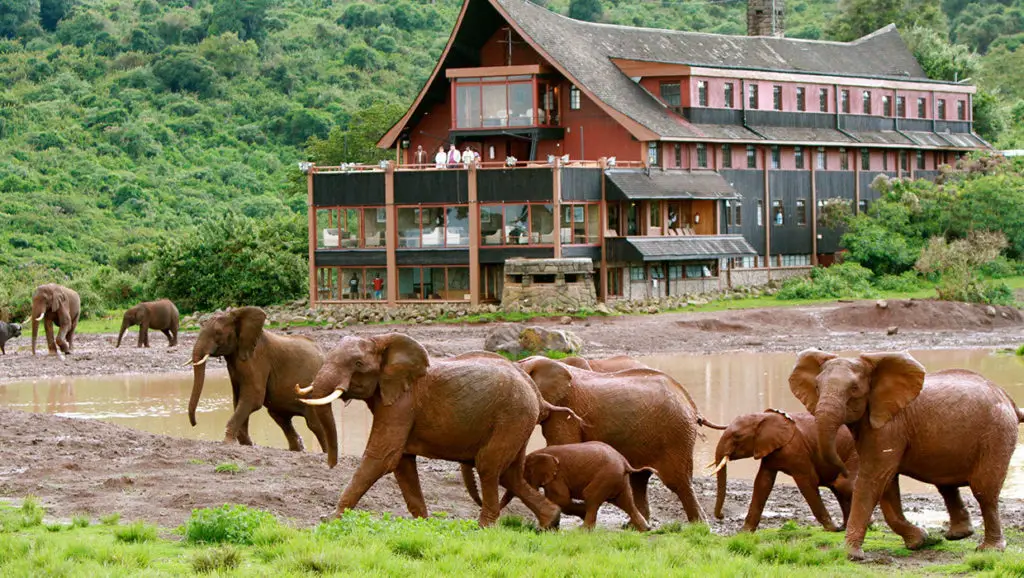Eldoret, Kenya’s fifth-largest city, experiences a subtropical highland climate characterized by mild temperatures and significant rainfall throughout the year.
Located at an elevation of approximately 2,100 meters (6,900 feet) above sea level, Eldoret’s climate is influenced by its altitude and proximity to the equator.
The city’s weather patterns contribute to its agricultural productivity and make it an ideal location for athletic training, particularly for long-distance runners.
What type of climate does Eldoret have?
Eldoret has a subtropical highland climate, also known as a tropical monsoon climate. This climate type is characterized by:
- Relatively consistent temperatures year-round
- High precipitation figures
- No distinct dry season
- Mild to cool temperatures due to high elevation
What are the average temperatures in Eldoret?
The temperature in Eldoret remains relatively stable throughout the year:
- Average annual temperature: 16.2°C to 18.6°C (61.2°F to 65.5°F)
- Coldest month (July): Average temperature of 16.2°C (61.2°F)
- Warmest month (March): Average temperature of 18.6°C (65.5°F)
- Daily temperature range: 51°F to 80°F (10.6°C to 26.7°C)
It’s rare for temperatures to drop below 47°F (8.3°C) or rise above 84°F (28.9°C).
How much rainfall does Eldoret receive annually?
Eldoret receives significant rainfall throughout the year:
- Annual precipitation: Approximately 1,100mm (43 inches)
- Wettest months: April and May
- Driest months: January and February
Despite having drier months, Eldoret does not experience a true dry season, as rainfall occurs year-round.
What are the seasons like in Eldoret?
While Eldoret doesn’t have distinct seasons like temperate climates, it does experience variations in rainfall:
- Long rainy season: March to May
- Short rainy season: October to November
- Relatively drier periods: June to September and December to February
Temperature variations between seasons are minimal due to Eldoret’s proximity to the equator.
How does Eldoret’s climate compare to other Kenyan cities?
| Aspect | Eldoret | Nairobi | Mombasa | Kisumu |
|---|---|---|---|---|
| Climate type | Subtropical highland | Subtropical highland | Tropical wet and dry | Tropical savanna |
| Elevation | 2,100m | 1,795m | 50m | 1,131m |
| Avg. Annual Temp. | 17.4°C (63.3°F) | 19°C (66.2°F) | 26.3°C (79.3°F) | 23°C (73.4°F) |
| Annual Rainfall | 1,100mm | 925mm | 1,072mm | 1,352mm |
| Humidity | Moderate | Moderate | High | High |
How does Eldoret’s climate affect agriculture?
Eldoret’s climate is highly favorable for agriculture:
- Consistent rainfall supports year-round crop growth
- Mild temperatures allow for diverse crop cultivation
- High elevation creates ideal conditions for certain crops like tea
- Climate supports both crop farming and livestock rearing
Major crops in the region include maize, wheat, and vegetables.
What impact does the climate have on athletics in Eldoret?
Eldoret’s climate contributes significantly to its status as a training ground for world-class athletes:
- High altitude improves cardiovascular performance
- Mild temperatures allow for year-round outdoor training
- Cool mornings and evenings are ideal for long-distance running
- Consistent climate helps athletes maintain regular training schedules
These factors have helped Eldoret produce numerous Olympic and world champion runners.
Are there any extreme weather events in Eldoret?
Eldoret generally experiences mild weather, but some extreme events can occur:
- Occasional heavy rainfall leading to localized flooding
- Rare frost events during the coldest months
- Infrequent periods of drought during drier months
- Thunderstorms, particularly during the rainy seasons
However, severe weather events are less common in Eldoret compared to other regions of Kenya.
How does the climate affect daily life in Eldoret?
The climate influences various aspects of daily life in Eldoret:
- Clothing: Light to medium-weight clothing is suitable year-round
- Housing: Homes are designed for mild temperatures and rainfall
- Transportation: Roads and infrastructure are built to handle regular rainfall
- Recreation: Outdoor activities are possible throughout the year
- Energy use: Minimal need for heating or cooling in buildings
What is the best time to visit Eldoret?
The best time to visit Eldoret depends on personal preferences:
- Driest months (January and February): Ideal for outdoor activities
- Long rainy season (March to May): Lush landscapes but potential travel difficulties
- Cool season (June to August): Comfortable temperatures for exploration
- Short rainy season (October to November): Green scenery but some rainfall
Overall, Eldoret can be visited year-round due to its relatively stable climate.
How does humidity affect Eldoret’s climate?
Humidity in Eldoret is generally moderate:
- Average relative humidity: 60-70%
- Higher humidity during rainy seasons
- Lower humidity during drier months
- Altitude helps moderate humidity levels
The moderate humidity contributes to the comfortable feel of Eldoret’s climate.
What is the average cloud cover in Eldoret?
Cloud cover in Eldoret varies throughout the year:
- Average annual cloud cover: 60-70%
- More cloudy during rainy seasons (March-May, October-November)
- Less cloudy during drier months (January-February, June-September)
- Mornings often start clear, with clouds building up during the day
How does wind affect Eldoret’s climate?
Wind patterns in Eldoret are generally mild:
- Average wind speed: 5-10 km/h (3-6 mph)
- Prevailing wind direction: East to Southeast
- Stronger winds during dry seasons
- Calmer winds during rainy seasons
The mild winds contribute to the overall pleasant climate of the city.
What is the UV index like in Eldoret?
Due to its proximity to the equator and high altitude, Eldoret experiences high UV levels:
- Average UV index: 10-11 (Very High to Extreme)
- Highest UV levels: February to March
- Lowest UV levels: June to August
- Sun protection is necessary year-round
How is climate change affecting Eldoret?
Climate change is impacting Eldoret in several ways:
- Increased variability in rainfall patterns
- More frequent extreme weather events
- Slight increase in average temperatures
- Changes in growing seasons affecting agriculture
- Potential long-term impacts on water resources
Local and national efforts are underway to address these challenges and promote climate resilience.
What measures are being taken for climate adaptation in Eldoret?
Eldoret is implementing various measures for climate adaptation:
- Improved water management systems
- Promotion of climate-smart agriculture
- Urban planning initiatives to enhance resilience
- Reforestation and conservation efforts
- Public awareness campaigns on climate change
These efforts aim to ensure Eldoret’s sustainability in the face of changing climate patterns.
How does Eldoret’s climate contribute to its overall appeal?
Eldoret’s climate is a significant factor in its appeal:
- Comfortable temperatures year-round
- Suitable for diverse agricultural activities
- Ideal for athletic training and outdoor recreation
- Minimal need for artificial heating or cooling
- Supports a variety of flora and fauna
These climatic factors contribute to Eldoret’s quality of life and economic activities.
In conclusion, Eldoret’s subtropical highland climate, characterized by mild temperatures and consistent rainfall, plays a crucial role in shaping the city’s environment, economy, and way of life.
The climate supports a thriving agricultural sector, contributes to the city’s reputation as an athletic training hub, and provides a comfortable living environment for its residents.
While facing challenges from climate change, Eldoret is taking steps to adapt and maintain its unique climatic advantages. Understanding and preserving this climate is essential for the continued growth and sustainability of this important Kenyan city.



